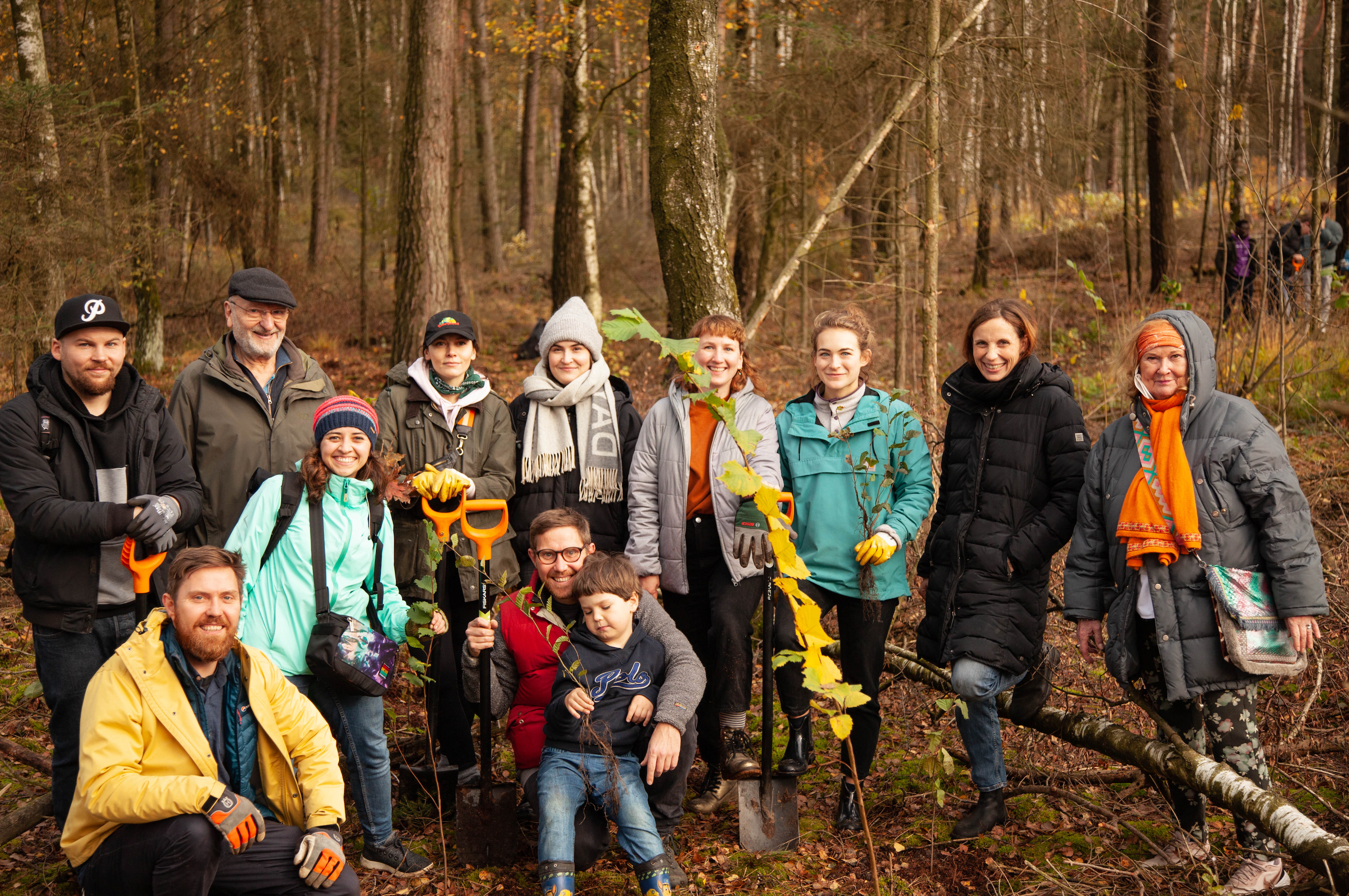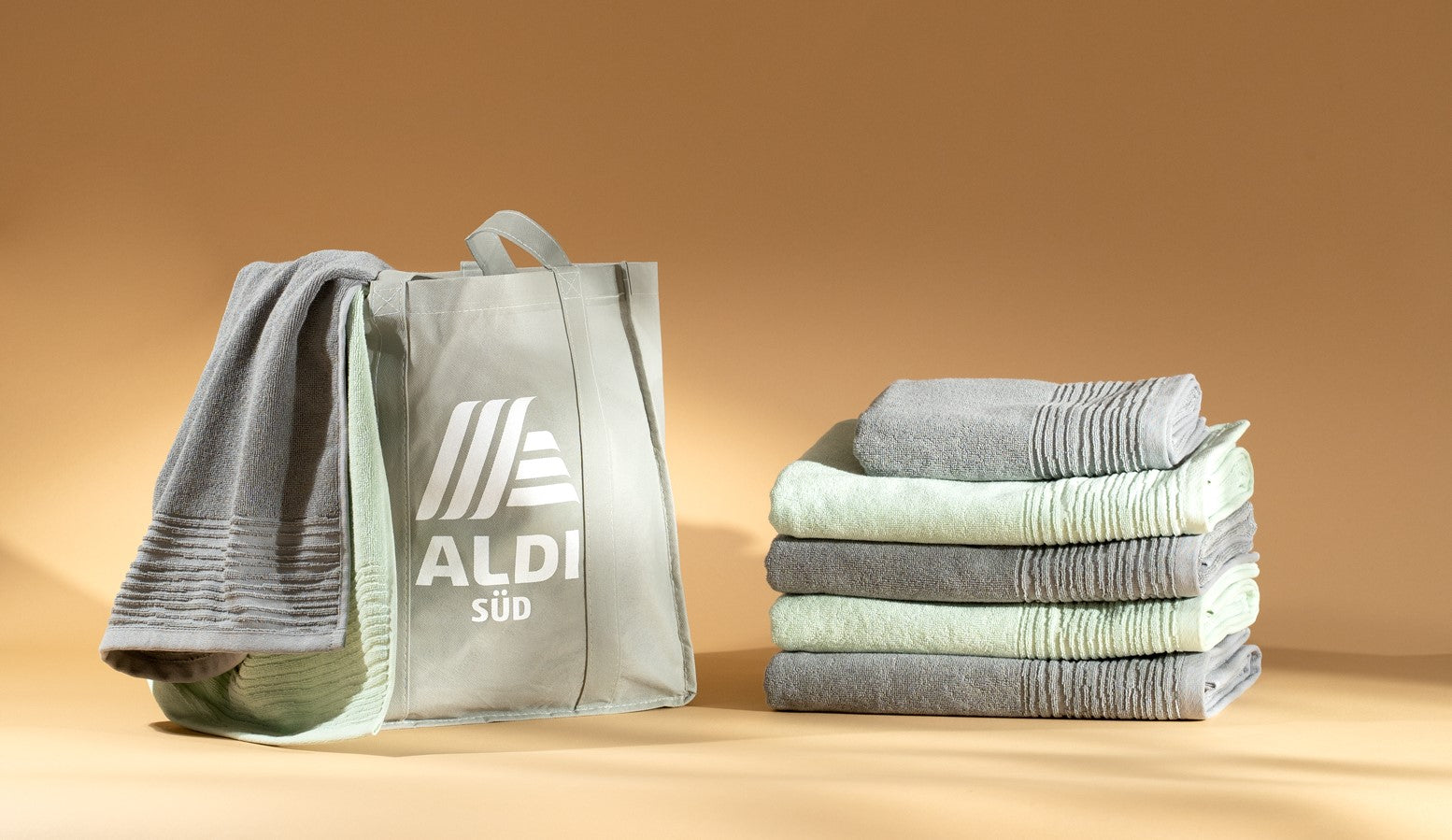
Why every tree helps us gain time
We have been planting trees since we were founded three years ago. Why do we do this?
The production of Kushel is already very environmentally friendly, as well as climate and groundwater neutral - so why plant extra trees? The answer is simple: because we have recognized that the environment and peace on our planet are in danger due to advancing climate change. Together with our customers, we want to make an active contribution to capturing more CO2 from the atmosphere than we need.
Every tree planted by Kushel helps us buy time until we, as humans, have managed to limit global warming to 1.5 degrees compared to the pre-industrial era.
Previously, the IPCC had assumed that the world's CO2 budget would last another 20 years or so. In the latest IPCC Assessment Report of August 2021, global warming of 1.5 degrees is expected to be reached as early as 2030 - ten years earlier than assumed in 2018!

Our mission as a company is to show that it is possible to offer a stunningly beautiful and practical product while providing our planet with more resources than were used in its production. We do this by using all the resources we use very efficiently, keeping our environmental impact to a minimum.
In Portugal and Germany, Kushel's products are manufactured using the most advanced machinery in the industry. Our partner in Portugal has invested in photovoltaic systems to use as much emission-free solar energy as possible. The water from the dyeing process is recycled on-site and reused to a large extent.
The production process is audited by the sustainability consultancy "Die Klimapatenschaft GmbH". We visit our partners in person, check the manufacturer's specifications on site and satisfy ourselves of the safety and environmental standards. We then finance projects that offset CO2 emissions and generate fresh water, and plant new trees.
The idea is deliberately open-ended: we set a trend in the industry and inspire other companies to develop climate- and resource-positive products.
Planting trees for the climate: is that really sustainable?
Pornhub has done it, Apple has done it, and many companies also claim to plant trees. To protect the climate, they all proclaim. But can that work?
Protecting the climate with trees - this idea seems as simple as it is plausible: trees store carbon in their roots as part of photosynthesis and release oxygen back into the atmosphere. In this way, they can neutralize carbon dioxide, which is harmful to the climate.
The PR campaigns mentioned above are not wrong in principle; trees are actually planted. However, we are critical of such PR campaigns by large companies and suspect that they are greenwashing, since the basic business models of many companies are neither environmentally friendly nor climate-neutral. Greenwashing is the term used when a company wants to present itself as environmentally friendly with a one-off campaign, but in the core of its performance processes it is anything but environmentally friendly.
How can you recognize greenwashing with tree planting for the climate?
Ask yourself whether the company is already acting in an environmentally friendly way even without the tree planting campaign or rather not. A good indicator is to check whether the company is already working in a climate-neutral manner, or whether this has only been announced. As a company, working climate-neutrally usually means that all service processes have been optimized or are being optimized for high resource efficiency. If the company or organization has not yet commissioned a calculation of its emissions, but there is only a vague target by when climate neutrality will be achieved, you should take a closer look and question the action.
A frightening example of such absurd announcements is, for example, the company Apple: after all, it is the company with the highest cash balance in the world (as of 2022: $192.8 billion) and many times that as a stock market value.
Apple wants to be carbon neutral by 2030: that's way too late! And considering the financial capabilities, but also the resource-intensive business model of this company - this is a concrete example of greenwashing by planting trees.
We must not see afforestation as a free pass to continue emitting CO2 indefinitely. Avoiding CO2 emissions, for example through energy-efficient performance processes and the use of emission-free energy in the business models of modern companies, must remain a priority.
We pay attention to these aspects when selecting our partners!
The most important ecological aspect of tree planting is that the seedlings can also grow into real trees.
This is ensured in a German nature reserve for 50 years by the district forester: come and visit us in Klövensteen! Near Hamburg, we support the transformation of a monoculture forest into a more robust mixed deciduous forest. But trees grow even faster in the southern hemisphere: we find the forest garden project in Tanzania particularly convincing.
Local farmers sign up for the program to plant a garden using trees from Kushel. In this forest garden, the planted trees protect the nuts and fruits from the sun, wind and wild animals. Through this indirect economic benefit, the trees are cared for by the farmers. You can be sure: We have selected projects where the planted trees will grow as long as possible.

Mixed forests instead of monocultures!
Here near Hamburg there is a monoculture coniferous forest with many spruces and pines. Together with the district forester, we plant red beech and other deciduous trees so that a mixed forest is created.
This mixed forest is much more robust against extreme weather events and also more resistant to pests. And that's good for preserving the forest - plus it yields fresh water!
It works like this: The change in root structure allows more rainwater to seep through the soil - AND less rainwater will evaporate through the tree canopy in a mixed forest.
Each tree planted by us in the Klövensteen nature reserve generates 200 liters of fresh water per year. This effect was studied by the University of Göttingen by comparing the groundwater level of a monoculture forest and a mixed forest.
By planting trees, the forest becomes more robust and we gain fresh water - a win-win situation for us and our climate. Planting trees for the climate makes sense if the trees can grow for a long time and the protection of the newly created forests is advanced. You can find out exactly which partners Kushel works with to plant trees here.




